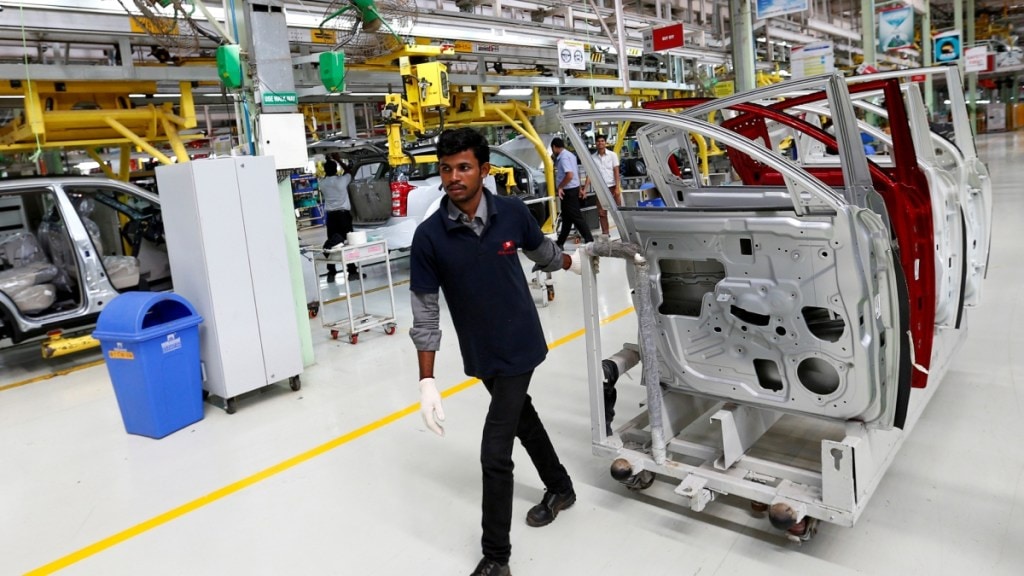By Shreyas Shibulal
The dynamic electric vehicle (EV) environment in India is undergoing a transformation, fuelled by a growing emphasis on sustainability, and the eco-friendly strides made by the Indian EV industry as it sails a green course toward a more sustainable future.
Reusing Old Lithium-Ion Batteries
According to a thorough analysis published by NITI Aayog in partnership with the UK government, repurposing old lithium-ion batteries has emerged as a transformative endeavour in India. According to the report, over 40% of end-of-life EV batteries find a second life through effective reuse for a variety of secondary purposes. These applications span from stationary energy storage for homes and businesses to grid support systems, demonstrating a considerable dual advantage of extending the battery’s life cycle and reducing electronic waste.
The research emphasises the importance of coordinated efforts between manufacturers and recycling facilities in the construction of collecting and repurposing centers around the country. The data emphasises the significance of such relationships.
The Effect of Battery Waste Management Regulations
Stringent legislation, including the establishment of Extended Producer Responsibility (EPR) frameworks, highlight India’s proactive attitude to battery waste management. Data from the Central Pollution Control Board (CPCB) show a respectable 30% reduction in improper EV battery disposal since the implementation of these restrictions. This decrease demonstrates the rules’ effectiveness in reducing environmental hazards linked with hazardous battery materials.
Furthermore, a promising 80% compliance rate with recycling rules among manufacturers guarantees that the bulk of end-of-life EV batteries are properly treated. This not only matches with global sustainability goals, but also positions India as a responsible global EV manufacturing partner.
Thermal Management of Batteries in the Long Term
The varied climate of India needs unique thermal management systems in EVs. The use of phase change materials (PCMs) in heat management systems has yielded encouraging results. According to research conducted by the Indian Institute of Technology (IIT), EVs fitted with PCM-based thermal management systems have a 15% boost in energy efficiency, especially in extreme climate locations.
The utilisation of PCMs not only enhances the overall performance of EVs but also contributes to energy conservation. This data underscores the potential for sustainable thermal management solutions to become a cornerstone of India’s EV manufacturing practices.
Biodegradable Non-Structural Component Materials
Biodegradable materials are being integrated into non-structural components by Indian EV makers, a technique that goes beyond regulatory compliance. A leading manufacturer reported a 20% reduction in carbon footprint by replacing standard plastics for interior components and body panels with bioplastics.
The data indicates a dedication to sustainable material selections, which aligns with circular economy concepts. As consumers prefer eco-friendly products, such measures place Indian EV manufacturers at the forefront of global sustainability.
Life Cycle Assessment
LCAs of EV manufacturing processes in India provide useful information on the environmental impact at each stage. According to a comprehensive study undertaken by the Energy and Resources Institute (TERI), optimising raw material extraction, manufacturing processes, and end-of-life disposal can result in a 25% reduction in overall environmental impact.
This data underscores the significance of a comprehensive approach to sustainability, urging manufacturers to consider EVs over their full life cycle. By identifying opportunities for improvement, the industry can continuously improve its operations to reduce its environmental impact.
Components derived from mycelium or algae
Indian EV producers are pioneering the use of mycelium and algae-based components as alternatives to standard materials. The effective integration of mycelium-based materials in interior components by a well-known manufacturer resulted in a 30% reduction in non-renewable resource use when compared to traditional materials.
This novel technique aligns with biomimicry and circular design concepts, demonstrating India’s commitment to pushing the boundaries of sustainability in EV manufacturing.
Sustainable practices are gaining CenterStage in the EV manufacturing environment as India accelerates its shift to electric mobility. From reusing retired batteries to embracing novel materials and efficient thermal management, the data-backed initiatives mentioned collectively lead to a greener and more eco-friendly future. With a growing commitment to sustainability, the Indian EV industry is not only satisfying legal standards, but also setting a global standard for responsible and forward-thinking manufacturing processes.
Author is Founder and Director of Micelio Mobility.
Disclaimer: Views expressed are personal and do not reflect the official position or policy of Financial Express Online. Reproducing this content without permission is prohibited.



















